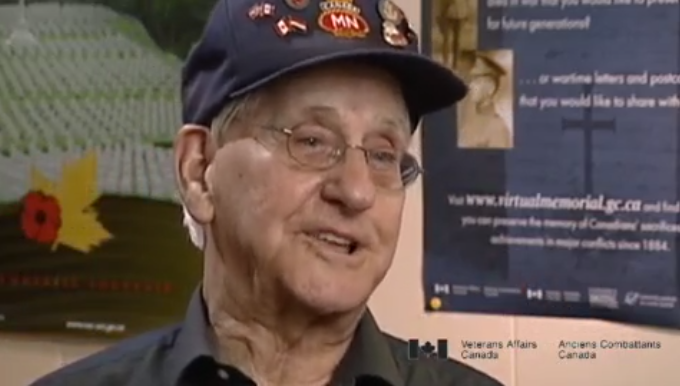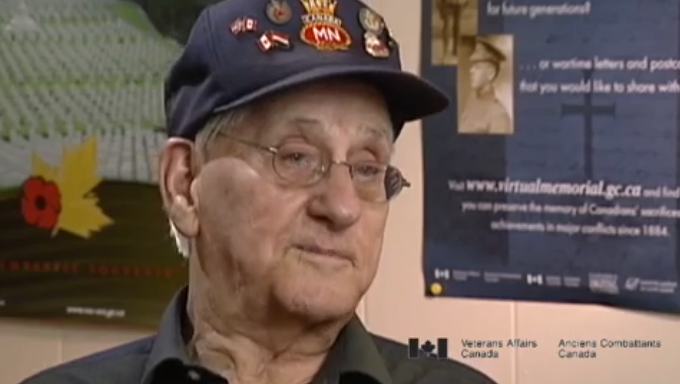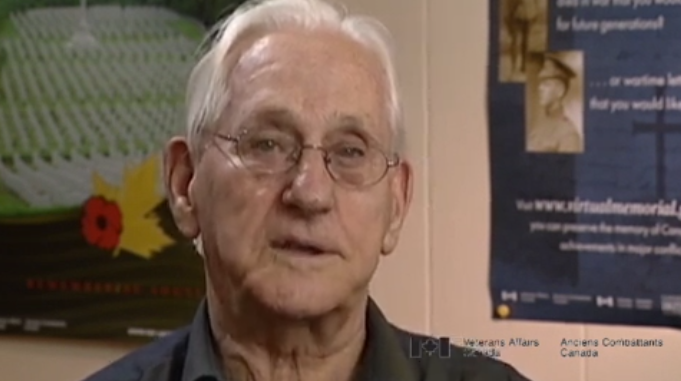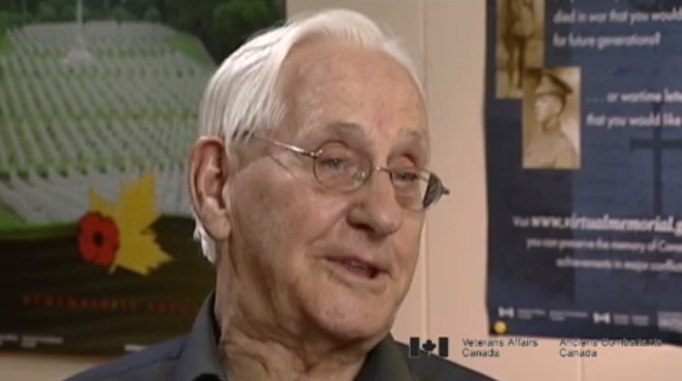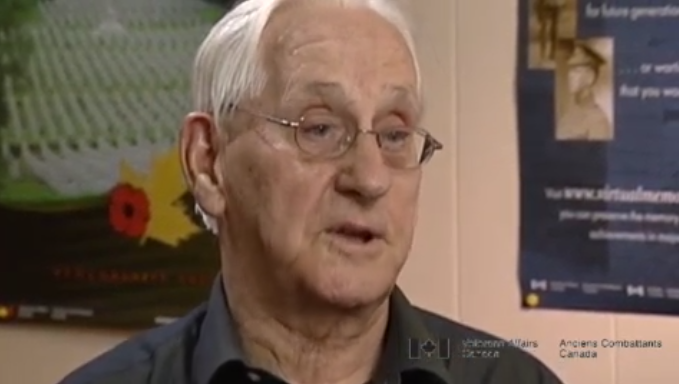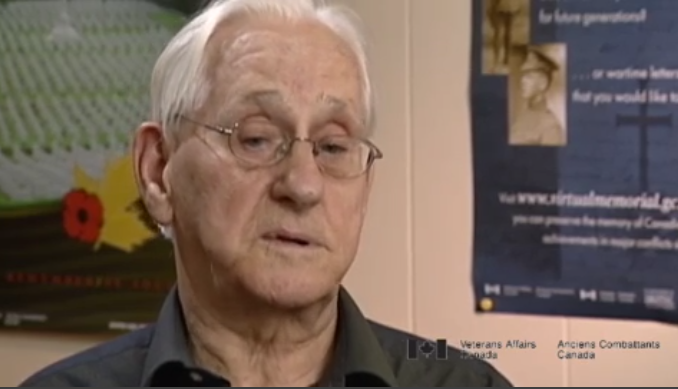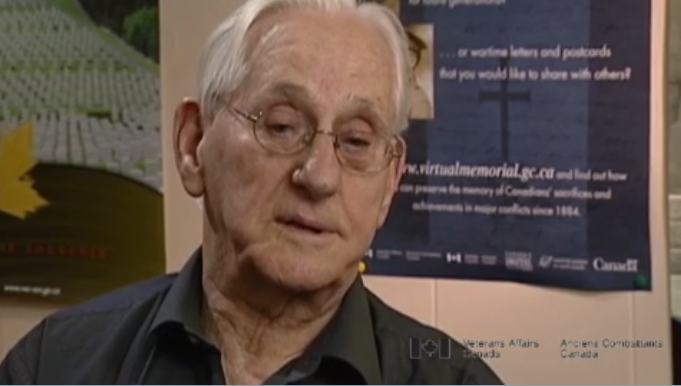Torpedo Starboard side! Torpedo Starboard side!
Heroes Remember
Torpedo Starboard side! Torpedo Starboard side!
Transcript
The 5th of September, 1945, about 3:30 in the morning, we heard
this big bang hit the side of the ship. So one of the AB’s on
watch, he said, “Torpedo, starboard side! Torpedo, starboard
side!” I reached on up and got my life-jacket up overhead, where
the curtains that cut across my bunk. And I had my clothing on.
I didn’t change my clothing or anything, just laid down on my
bunk, because I was just straight up over the engine room. Of
course, I got my life-jacket on then ran for the deck, and I
tripped and fell down or something, so one of the AB’s picked me
up and brought me to the wrong lifeboat. I should have been in
the port lifeboat, but I ended up in the starboard lifeboat, if
my memory is correct. I was with the chief officer and I was
supposed to be in the captain’s lifeboat, because there’s a list
that you see where you were supposed … the lifeboat you were
supposed to go to. So anyway, we got away from the ship. We
shimmied down the lines, you know, from the deck and when we got
away from the ship, Sparks came out, “SOS”. He was a Canadian
chap. I can’t think of his name … he’s from Ontario. I don’t
know if he’s living or not, but a heck of a nice guy, and he was
about 18, I think. He gave out “SOS”, and of course the Germans
picked up the SOS. And then the submarine come to surface, and
then they started shelling the ship and then put another torpedo
in it. She didn’t sink then because we had a load of pulp wood
for the mines, for Wales, you see, to prop up the mines. The
ship didn’t sink right away. It took quite a few hours. So, we
were waiting when one of us in the chief officer’s boat … we
rowed back towards the ship and the shelter wasn’t over our
head. And one of the English guys said, “It’s better to lose
one man than to lose a whole boat full.” And the chief officer
said, “We got to take a chance,” he said. “We can’t lose him
either. We want to see everybody saved.” Of course, they
argued over the matter, and it was getting so hot for us that
they said, “Well, set fire to it,” after the lifeboat, or jolly
boat was there.So finally, we turned away because it was getting
too hot for us. And we rowed away from the ship to avoid
getting hit with the shells or something. So, when daylight
come, we seen this little jolly boat on the horizon. And we
spot it and so we sailed over. The two lifeboats got together.
The 12 in one and 12 in the other, and the other one was the 13
… it was 23 of us. So, when we got the two lifeboats together,
the captain give me old hell for getting in the wrong lifeboat
when I should have been in with him, you see. So, I got out of
the chief officer’s lifeboat and transferred to the captain’s
lifeboat. Then we went over and picked up Sparks and let the
ship go, let the boat then go adrift. Then it started to get
cold. That was on the 5th of September, 1945.
Description
Mr. Evans describes being torpedoed at night and abandoning ship in lifeboats. He overheard officers debating whether or not to try to rescue their radio operator who had stayed aboard to send the SOS.
George Harold Evans
George Harold Evans was born March 17, 1926 in St. John’s, Newfoundland. He was one of thirteen children. His father, a First World War Veteran, worked in the Newfoundland fishery and Mr. Evans fished with his father.
Meta Data
- Medium:
- Video
- Owner:
- Veterans Affairs Canada
- Duration:
- 3:41
- Person Interviewed:
- George Harold Evans
- War, Conflict or Mission:
- Second World War
- Branch:
- Merchant Navy
- Units/Ship:
- SS Envige
- Occupation:
- Messboy, Fireman/Stoker
Related Videos
- Date modified:



